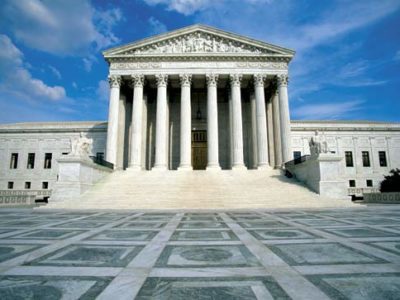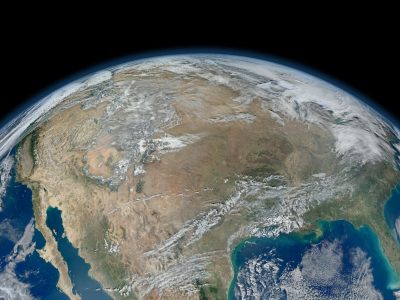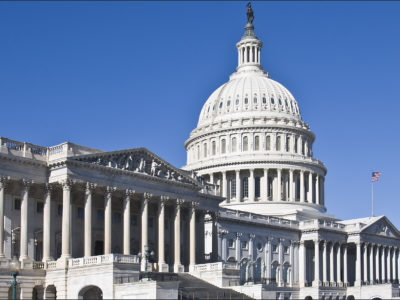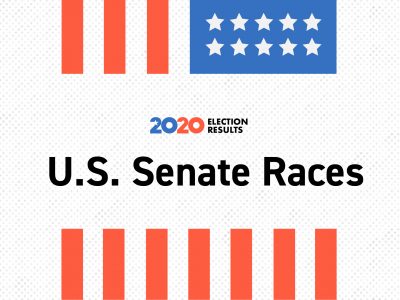What Next for Climate Policy?
The election outcome is still contested. Here are three possible scenarios.
We probably won’t be sure for a while who will be our next President. The GOP will probably control the Senate but even that isn’t completely certain yet. Rather than play forecaster, I thought it would be helpful to look at how various outcomes will impact climate policy. Since we’re all suffering a lot of angst right now, I wanted to start with a few positive things -- things that won’t change regardless of the election outcome. The first involves the ...
CONTINUE READINGThe Races to Watch
These are the down-ticket races most likely to impact environmental policy.
The presidency is by far the most important office on the line, but there are a host of down-ticket rates that will shape energy and environmental policy over the next few years. I’ve included links to previous posts that discuss the environmental views of the candidates in more detail. The Senate Control of the Senate will be crucial to the next President. Democrats seem to have their best shot at flipping Arizona, Colorado, and Maine. Given that Republicans a...
CONTINUE READINGWhat Could Trump Do with Four More Years?
He’s already rolled back almost everything Obama did. What next?
Given that Trump has rolled back nearly all of Obama's regulatory efforts, what further harm could he do? Quite a bit as it turns out. If you agree with him that regulation achieves nothing and only stands in the way of prosperity, that should make you very happy. To begin with, Trump can do more to prevent any future President from returning to a more pro-environmental path. Beyond filling the Ginsburg seat, there's the chance that Justice Breyer's seat will be...
CONTINUE READINGThe members of the U.S. Supreme Court cannot credibly decide 2020 elections cases
To do so could impair faith in our democratic institutions
When it comes to deciding cases that could affect the outcome of the 2020 election, all members of the U.S. Supreme Court have a serious conflict of interest – not because they may be political partisans, but because their jobs are at stake. It is well-understood that if the Democrats take the White House and both houses of Congress, there will be debate about changing the rules for membership on the Supreme Court. One possibility would involve an expansion of the co...
CONTINUE READINGGeoengineering: Ready for its Close-up?
After long being marginalized in climate debates, geoengineering is experiencing a surge in attention -- which carries both opportunities and risks.
If you’re a long-time Legal Planet reader, you may have noticed that I weigh in once a year or so to say that geoengineering – active engineered response to global climate change – is going to get prominent, and intensely contentious, soon. Geoengineering? Before continuing, we need a brief aside about names. Even what to call it is contested and shifting. In addition to geoengineering, people call it climate engineering, climate remediation, more recently clima...
CONTINUE READINGAdvancing Park Equity in Los Angeles
Investing in urban green space can improve public health and environmental conditions in Los Angeles’ underserved communities, while strengthening the environmental movement by inspiring people to become environmental stewards.
UCLA Law launched its first-ever Public Service Challenge this week, and the Emmett Institute is sponsoring two of the Challenge’s projects: a local garden cleanup with the Los Angeles Neighborhood Land Trust and phone banking with the Environmental Voter Project. Both projects provide the UCLA Law Community with the opportunity to support organizations that are fighting for a more sustainable future—both locally and nationally. Access to green space produces a ho...
CONTINUE READINGShort and Simple Climate Legislation
With a few sentences, Congress could do a lot to fix the law.
The last time Congress tried to pass climate change legislation, the bill was about 800 pages long. That bill, the Waxman-Markey Act, tried to adopt a comprehensive set of emissions reduction measures, which is a complicated business. But a much simpler law could allow the U.S. to move forward quickly with less ambitious but still highly significant actions. Such a law would also void some of Trump's most important rollbacks. All it would take would be four or fiv...
CONTINUE READINGClimate Policymaking in the Shadow of the Supreme Court
Amy Coney Barrett could shift how the Supreme Court approaches environmental regulations. Policymakers should prepare accordingly
By Ann Carlson, Amelia Keyes, Ben Harris and Dallas Burtraw (Cross-posted at Resources for The Future's blog The confirmation of Amy Coney Barrett to fill the seat left by the late Justice Ruth Bader Ginsburg has catapulted the Supreme Court back onto the front pages of newspapers around the country. Though press attention has focused on abortion, same sex marriage, healthcare policy, and the outcome of the presidential election, the shift in the Court’s...
CONTINUE READINGDown to the Wire: The Battle for the Senate
Control of the Senate will matter tremendously, regardless of who’s in the White House.
According to political forecaster Cook Political, "Suddenly, nearly anything is possible in the Senate races." After yesterday's vote to confirm Amy Barrett, I probably don't need to tell you how important Senate control is. In the next session of Congress, control of the Senate will determine the environmental views of new judges and whether any environmental legislation can pass. These Senate races will determine the shape of American policy until at least 2023. Democr...
CONTINUE READING“The Gaffe”
Will Democrats pay a price for Biden's "inconvenient truth" about the future of oil?
Although no one seemed to notice it while the debate was underway, political commentators are now abuzz about a “gaffe” by Biden about the future of gas and oil. Other aspects of the final presidential debate were covered in Cara Horowitz’s insightful post on Friday. I want to hone in on “the gaffe” in this post. Here’s the crux of what Biden said, from the debate transcript: Biden: I would transition from the oil industry. Yes. * * * Biden: Wel...
CONTINUE READING












